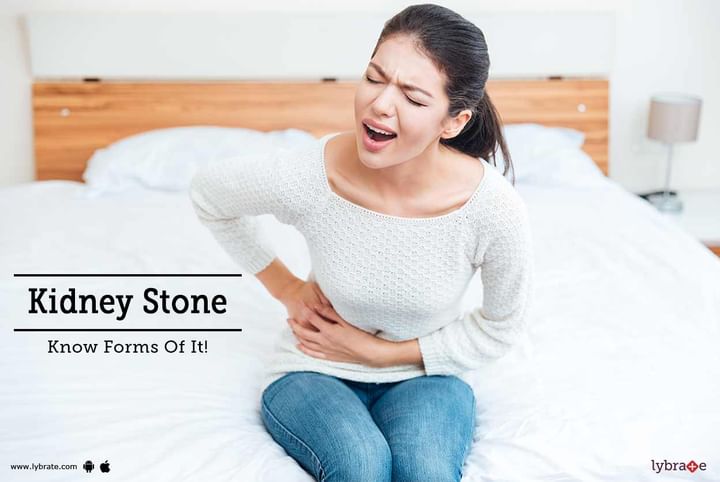Get the App
For Doctors
Login/Sign-up
Last Updated: Jan 26, 2020
BookMark
Report
Kidney Stone - Know Forms Of It!
The kidneys are the main excretory organs of the body and are responsible for removing all mineral wastes from the body. This high concentration of minerals predisposes them to form stones- which are small crystals of various minerals they are exposed to. The entire urinary tract starting from the kidneys, the ureters, and the bladder are at risk of developing stones. The risk is higher in people who do not drink enough water, as the minerals are not able to be cleared out.
Depending on the location, stones are named
- Renal: These are formed in the body of the kidneys.
- Ureteric: The urine passes from the kidney to the ureter through the ureters and can form stones, leading to blockage also
- Bladder: When the urine is stored in the bladder for a while, the chances of forming stones are quite high.
Symptoms
- Pain that is sharp, shooting pain on either side of the spine.
- There could be fever, vomiting, etc., but the pain is very indicative.
Management
- Stones less than 4 mm usually pass on their own
- Larger ones may require shock waves from an external source which breaks it into smaller ones, which are then eliminated.
Immediate treatment
- Intravenous injections of pain relievers; repeat if required.
- Antiemetics to control nausea and vomiting
- Watch for an hour for improved symptoms
- Send the patient home with these prescriptions for continued use
- An increased amount of water consumption (up to 3 liters per day), until the urine is almost colorless
- Strain the urine to check if the stone is passed, this is done.
If the patient presents with the following symptoms, immediate admission may be required:
- Persisting symptoms after an hour of treatment
- Pregnancy
- Persistently high fever (about 104) with severe shakes and/or chills
- People on dialysis and/or renal failure
- Elderly (greater than 60-year-olds)
- Severe dehydration and/or vomiting
Larger kidney stones (>4 mm) are managed as below.
- Extracorporeal shock wave lithotripsy (ESWL): This common treatment uses shock waves from an external source which breaks down the stones. The smaller ones easily pass through the urine.
- Ureteroscopy: In ureteroscopy, an endoscope is passed through urethra to the ureters.
- Open surgery: If the above measures are not feasible, open surgery may be the last option. This is very rarely used though.
Prevention of kidney stones
In case you have a concern or query you can always consult a specialist & get answers to your questions!



+1.svg)
